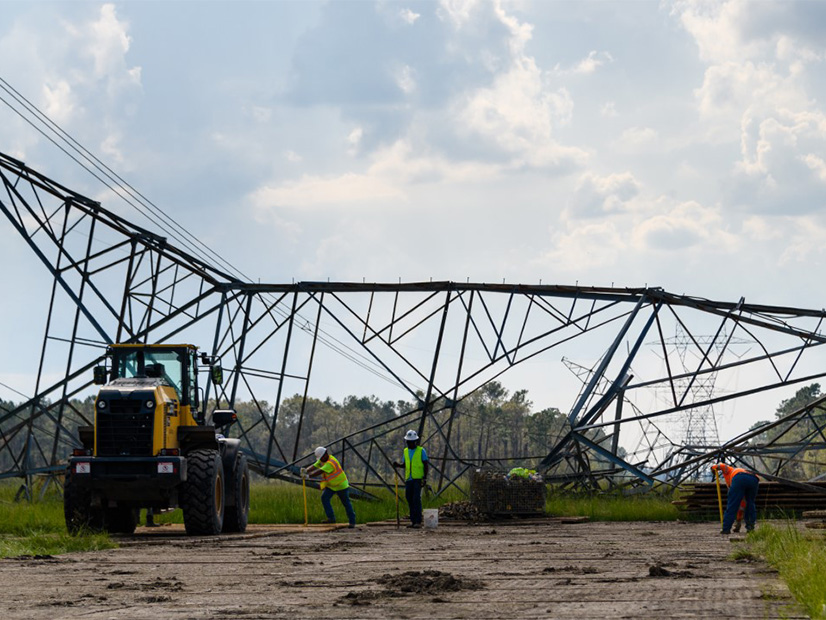FERC ruled that MISO can apply new settlement practices to generators physically disconnected from the grid during extensive transmission outages triggered by extreme events.
FERC on May 31 ruled MISO can apply new settlement practices to generators physically disconnected from the grid during extensive transmission outages triggered by extreme events.
The commission’s order allows MISO to adjust settlements when extreme events cause significant forced transmission outages that sever generation from the grid. Under the change, the RTO now can reflect in settlements the involuntary nature of a disconnection through a “forced-off asset” designation and block generators from excessive penalties or payments (ER24-1191).
The revisions went into effect June 3. MISO sought FERC’s approval for the rules before the RTO’s South region enters the Atlantic hurricane season.
MISO’s scarcity pricing setup assumes lines are intact and operational, with market participants having physical capability to respond to price signals by reducing demand or ratcheting up supply.
However, MISO said the “always connected” assumption doesn’t reflect the reality of cases like Hurricane Laura, when parts of the transmission system were destroyed. In those cases, MISO said it’s “inappropriate and inequitable” to levy performance penalties on disconnected generators unable to meet their day-ahead commitments by forcing them to “buy back their day-ahead committed energy at dramatically higher real-time prices.”
On the other hand, MISO said it’s equally unfair to “compensate involuntarily disconnected load as if it responded to real-time scarcity pricing and then pass off the cost of such windfall compensation to other market participants through uplift.”
MISO plans to use its day-ahead LMPs prior to the event to retroactively settle excessive penalties or excessive windfalls for knocked-off assets.
FERC agreed MISO’s plan will mitigate “substantial financial impacts without any corresponding operational benefits” in circumstances when multiple transmission outages prevent market participants from responding to price signals.
“We find that the proposed revisions would provide MISO with reasonable discretion to mitigate the unintended consequences of scarcity pricing during extreme events by evaluating individual facts and circumstances,” the commission added.
MISO said the revisions won’t apply during emergencies when the transmission system remains intact. It will require at least 10 transmission outages and a 10% increase in dead or disconnected pricing nodes before conditions are met to use the forced-off designation. It also pledged to declare forced-off asset events no more than two weeks after they occur.
If necessary, MISO will adjust settlements for resources in the path of the event that were cleared in the day-ahead market but couldn’t inject for at least six dispatch intervals. It also will make adjustments for load zones in the area with fully or partly forced-off loads and to virtual transactions associated with pricing nodes in the area that cleared in the day-ahead market.
MISO adviser Chuck Hansen has said events need to be “widescale” to activate the knocked-off designation, such as a weather disaster, geomagnetic event or cyberattack. The RTO expects such events will be rare. The status would not apply to assets that respond to MISO-directed load shedding.
The settlement rule change is part of MISO’s ongoing effort to improve its scarcity pricing.




